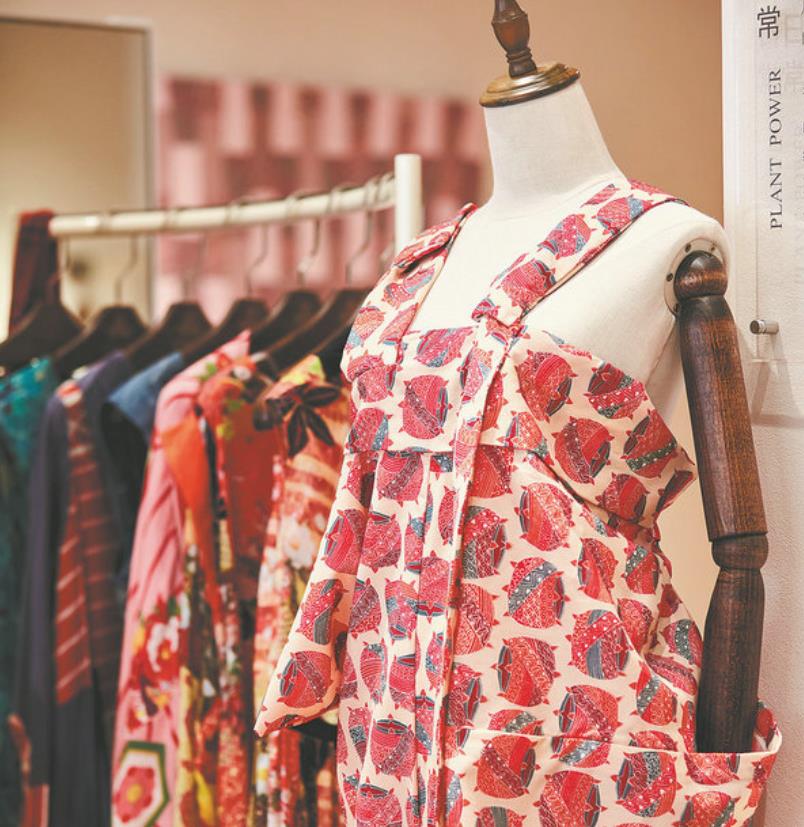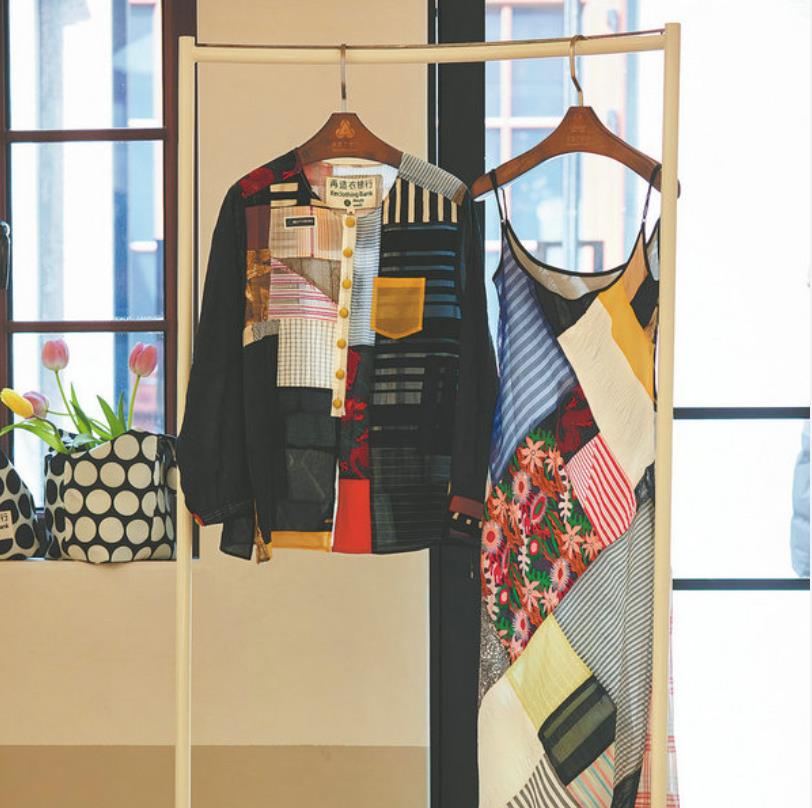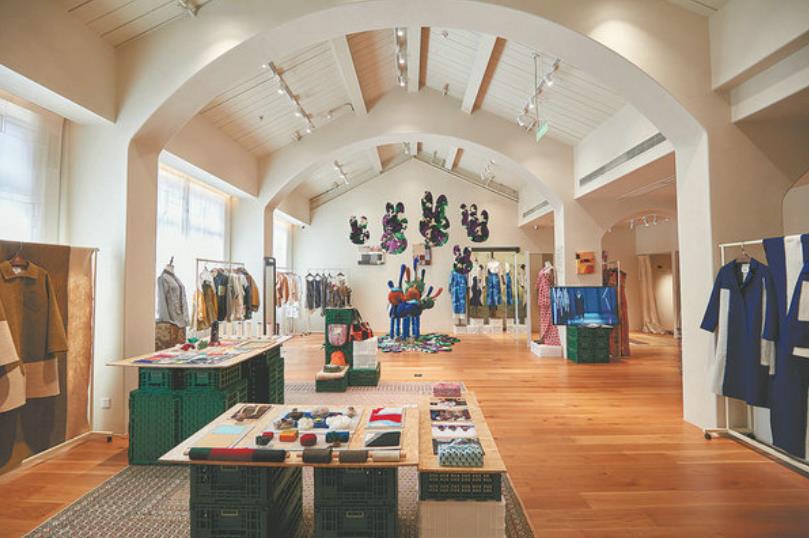
今日上海
服装品牌践行可持续发展理念 - 2023年05月07日
Sustainability trending as recycling becomes a label to wear with pride

An installation displayed by Reclothing Bank at the Shanghai Fashion Week.
Renowned as one of the country's first sustainable fashion figures, Zhang Na founded Reclothing Bank in 2010, which has showcased more than 1,000 sustainable items at the Shanghai Fashion Week over the past 13 years.
Besides upgrading the brand itself in recent years, Zhang has observed significant changes in consumer demands, markets and enterprises in the sustainable development path.
The brand specializes in designing fashionable and sustainable items by using old fabrics and items that have been discarded as waste.
Its independent research and development have formed a unique closed-loop system of recycling, regenerating, selling, and public welfare, making it a "spiritual lifestyle" brand with sustainable fashion as its core.
Earlier this year, Reclothing Bank launched its first concept flagship store at The Inlet in Shanghai.
"Consumers are interested in the sustainable concept, but many of them believe that it is expensive and boring. One of the reasons for opening the store is to show more consumers that it is a tangible concept and can be actually purchased," Zhang says.
Communicating with consumers brings Zhang new insights into the market.

Eco-friendly clothes and products displayed at the flagship store of Reclothing Bank in Shanghai.
"Our youngest customer is 14 years old and the oldest is 70, but they all accept and love our philosophy and design. In addition, the secondhand clothes recycling bin outside our store is almost full every day. The donated clothes are washed and neatly folded into the box. I can tell that everyone donates good clothes that are no longer needed," Zhang says.
In addition to consumers, the attitude of enterprises is also changing. "More responsible companies are willing to pay for good and eco-friendly designs," she adds.
Reclothing Bank has been collaborating with Starbucks since 2016 to sell environmentally friendly designs. During the Dragon Boat Festival in 2020, they manufactured a bag made of recycled plastic bottles and sold about 1.2 million bags.
"Each bag was made of 33 recycled plastic bottles," she explains.

Eco-friendly clothes and products displayed at the flagship store of Reclothing Bank in Shanghai.
Besides Starbucks, Reclothing Bank cooperates with varied industries, such as cosmetic brand Kiehl's and heating manufacturer Vaillant.
"All employees of Vaillant have changed, from last year, to wear eco-friendly work clothes designed by us," says Zhang.
In 2017, Zhang established a recycled fabric laboratory in her factory, researching and developing fabrics from recycled plastic bottles, abandoned fishing nets, and crops.
So far, about 1,000 types of fabrics have been developed.
"Throughout the process, we persist in extending the life cycle of the fabrics, saving water, and reducing carbon emissions. We also use mineral or anhydrous dyes," Zhang explains.
Zhang has also found ways to fulfill her corporate social responsibility and support sustainability.
"We have been cooperating with the Tongxinhuhui charity store in Beijing for over a decade. They have hired women from poorer regions to improve their income."
Zhang adds that the recycled clothes from Shanghai and other cities will be first selected and sold to these workers for 5 to 10 yuan ($0.72-1.44). Whatever is left over will be made into patchwork fabrics.
"I started teaching them how to make patchwork fabrics 12 years ago, and I trained them to randomly select materials, disinfect, split, and assemble them into the shape of the cloth I want," says Zhang, adding that she used to pay them 30 yuan per meter and now offers 100 yuan.

Eco-friendly clothes and products displayed at the flagship store of Reclothing Bank in Shanghai.
The patchwork fabrics are then sent back to Shanghai and made into high-end clothing for sale.
Part of the revenue is donated to NGOs every year, Zhang adds.
During the 2023 autumn/winter Shanghai Fashion Week in early April, Reclothing Bank displayed its sustainable context and achievements through material research and development, literature and multimedia installations, creating a comprehensive sustainable fashion exhibition.
"This exhibition includes our designs and documentaries, as well as a lot of raw materials used in our research and development process because everyone is eager to see what we are actually doing," Zhang says.
"In the past, we would maybe have an attitude of 'I don't care' — not caring about what others think. But this time, I want to express an attitude of 'I do care' — I care because I love, cherish, and respect," she adds.
"I hope that through exhibitions, more people can see that sustainability is not just a slogan. There are too many designs that are needed in real life, which are practical and beautiful, and full of emotions."
Source: China Daily

